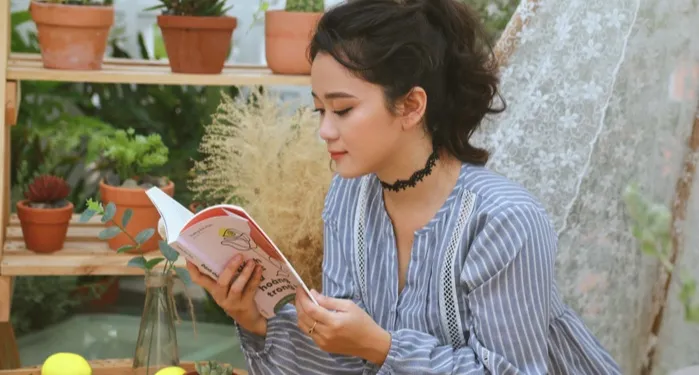
8 of the Best Poetry Anthologies
Poems have become more accessible these days. Social media, especially Instagram and Tumblr, and self-publishing have definitely helped expand its reach. Some of the best poems, however, are usually published in magazines, zines, and literary journals as singular pieces rather than collections or anthologies. Publishers also don’t put out poetry collections and anthologies as frequently as other kinds of books, so finding the best poetry anthologies can be laborious if you don’t know where to start. Fortunately, I have some recommendations here.
As a voracious poetry reader, I believe that the best poetry anthologies include works by both classical and modern poets. The anthology should be cohesive, with a unified theme. There is nothing worse than reading an anthology with poems thrown together haphazardly.
So, in this list, I made the selection as diverse, wide-ranging, and tight as possible. There is an anthology about the ongoing war in Ukraine, as well as ones about LGBT people, Black, Indigenous, and people of color, and immigrants. These anthologies tell the stories of marginalized people while also exploring current issues that affect them. In addition, there’s also an anthology that brings together works by classical and contemporary poets, giving you the best of both worlds.
From North America to Europe and Asia, here are eight of the most recent and best poetry anthologies.
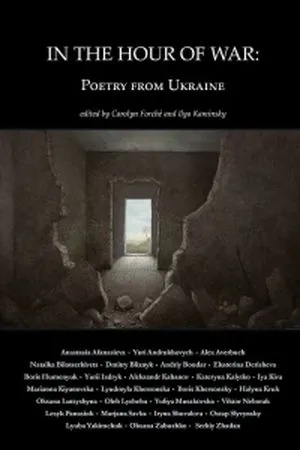
In the Hour of War: Poetry from Ukraine by Carolyn Forché and Ilya Kaminsky
This anthology includes 50 poems and features 27 Ukrainian poets whose works have been translated into English. What ties these poets together is their shared experience of war, as mentioned in the introduction.
“Russian soldiers are cooking a soup with vegetables snatched from our // barns and refrigerators they are tossing our books // to light the stove,” writes Lesyk Panasiukfrom in “Our Faces, Tossed about this Land,” which briefly mentions book burning.
The poems in this anthology paint a picture of the reality of the ordinary people in Ukraine, the victims of a senseless war. It also emphasizes the magnitude of the war and its effects on the generations to come. “We will never return again. // We will never see our city again,” Serhiy Zhadan writes.
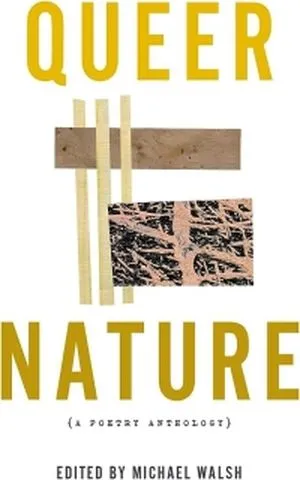
Queer Nature: A Poetry Anthology by Michael Walsh
This anthology features the work of more than 200 queer poets from the 19th to the 21st century who contributed to the genre of nature poetry. The issue with nature poetry, according to editor Walsh, is a lack of representation with the canon, as queer and trans poets have been writing about nature for a long time.
The book is full of nature metaphors while also being sensual, just like Francisco X. Alarcón’s “Asleep You Become a Continent.” “Night slips past your eyelids, // your breath the swaying of the sea, // sprawled across the bed like // a dolphin washed ashore, your mouth,” he writes.
Queer Nature is a celebration of gay and trans experiences enhanced by nature writing.
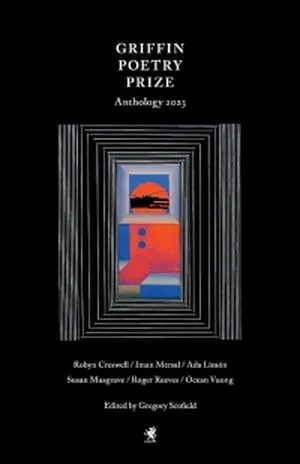
The 2023 Griffin Poetry Prize Anthology by Gregory Scofield
This anthology includes works from poets who have been shortlisted for the Griffin Poetry Prize this year.
Notable inclusions are seven poems from Ada Limón’s The Hurting Kind and eight poems from Ocean Vuong’s Time Is a Mother. The anthology also features works from poets such as Robyn Creswell, Iman Mersal, Susan Musgrave, and Roger Reeves.
“Each poem is a gift of light. Each poem comes from the dream-time, the one before first dawn,” writes Scofield in the introduction. According to him, he and his co-judges read 602 books for the prize, which included poets from all over the world. As a result, choosing the best ones was a huge task.
This anthology serves as a primer to the great works of the poets shortlisted, and there’s even commentary for each poetry collection and poet included.
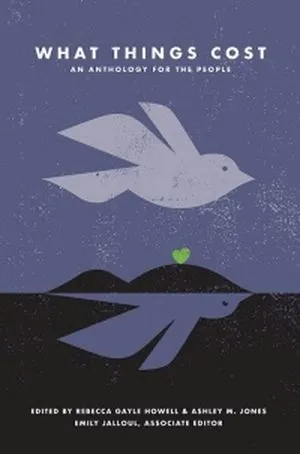
What Things Cost: An Anthology for the People by Rebecca Gayle Howell and Ashley M. Jones
This anthology contains labor-focused poems and a few short stories, divided into seven sections where the poems are interwoven among the short stories.
“[It] sings of the labor of the immigrant, the labor of women, the labor of industry, the labor of land. It sings of generations of work stolen and extracted, the work of hands that built this country but never had the right to it,” opens the book. In a sense, this anthology serves as a tribute to immigrants and their contributions, highlighting their efforts to navigate the challenges of life in the United States. The entries feature various roles, from doctors and grocery store workers to waitresses, Lyft drivers, factory workers, and, of course, immigrants.
“Farewell // your brown arms that shielded me then, // that shield me now,” writes poet Javier Zamora in “Second Attempt Crossing,” which tells the story of someone whose friend had crossed the Mexico-U.S. border but eventually died from the gang they ran away from in El Salvador.
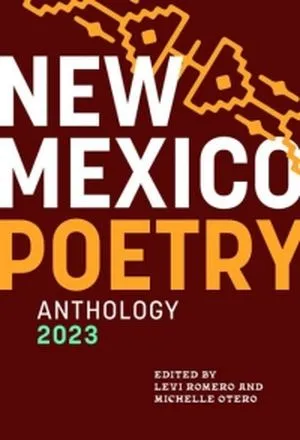
New Mexico Poetry Anthology 2023 by Levi Romero and Michelle Otero
Featuring 200 original poems, this anthology explores plenty of themes, including community, culture, family, history, and identity. “These voices rise as a canto, singing the joys, sorrows, and praises of individual experiences to form a poetry collective that encompasses the poetic-cultural landscape that is New Mexico,” writes Romero and Otero in the Preface.
The anthology even features poems in Spanish, encompassing themes such as their city and the experiences of asylum seekers. “Querido Nuevo México, // Te pregunto, pa’ ‘onde vas?” (“Dear New Mexico // I ask you, where are you going?”) writes Carmella Scorcia Pacheco, who wonders about the past, present, and the future of New Mexico.
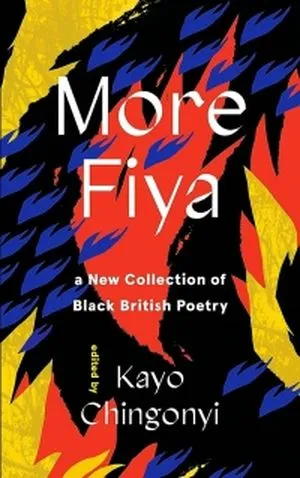
More Fiya by Kayo Chingonyi
This anthology showcases works by Black British poets, notably featuring Warsan Shire’s poems “Backwards” and “Midnight in the Foreign Food Aisle.” “is everything you love foreign // or are you foreign to everything you love?” she writes. These poems also appear in her collection Bless the Daughter Raised by a Voice in Her Head.
In the introduction, Chingonyi explores the role of Black poetry in the context of British poetry. He also reveals some bias in the current British poetry publishing scene. “The brightest stars in that literary firmament were a crop of mostly straight, mostly white, men writing in a mainstream post-war lyric tradition which foregrounded a certain kind of poetic excellence over and above others.”
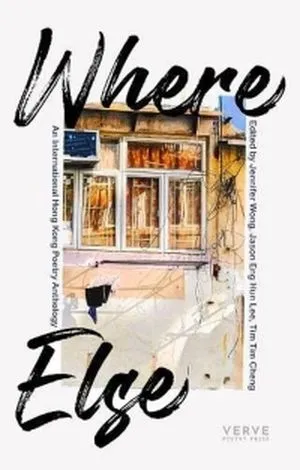
WHERE ELSE: An International Hong Kong Poetry Anthology by Jennifer Wong
This anthology features a wide spectrum of poets, including both established and emerging voices from Hong Kong and beyond. It includes individuals who have either lived in the city or have a connection to it.
“While highlighting Hong Kong’s connection to the wider world, the anthology celebrates the best of what can be produced or nurtured locally,” writes Jason Eng Hun Lee, one of the editors.
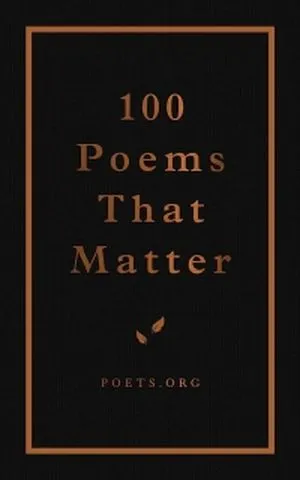
100 Poems That Matter by The Academy of American Poets
This one contains a diverse collection of poems spanning classic and contemporary voices, such as Emily Brontë, E.E. Cummings, Mary Oliver, Rilke, Audre Lorde, Sylvia Plath, Amanda Gorman, Tracy K. Smith, Ada Limón, Maya Angelou, Ross Gay, Joy Harjo, and Warsan Shire, among others.
The book is organized into six chapters, each centered around a specific theme or topic. It gathers works that have previously appeared in earlier collections by various poets, even including poems in Spanish.
Richard Blanco, the editor, explains what poems are and how few people read them now. He recommends this book to people who don’t understand poetry.
The best poetry anthologies are hard to come by. Do you want to read more of the best poems? You can find them in these best poetry magazines and in the best poetry books in 2023.








